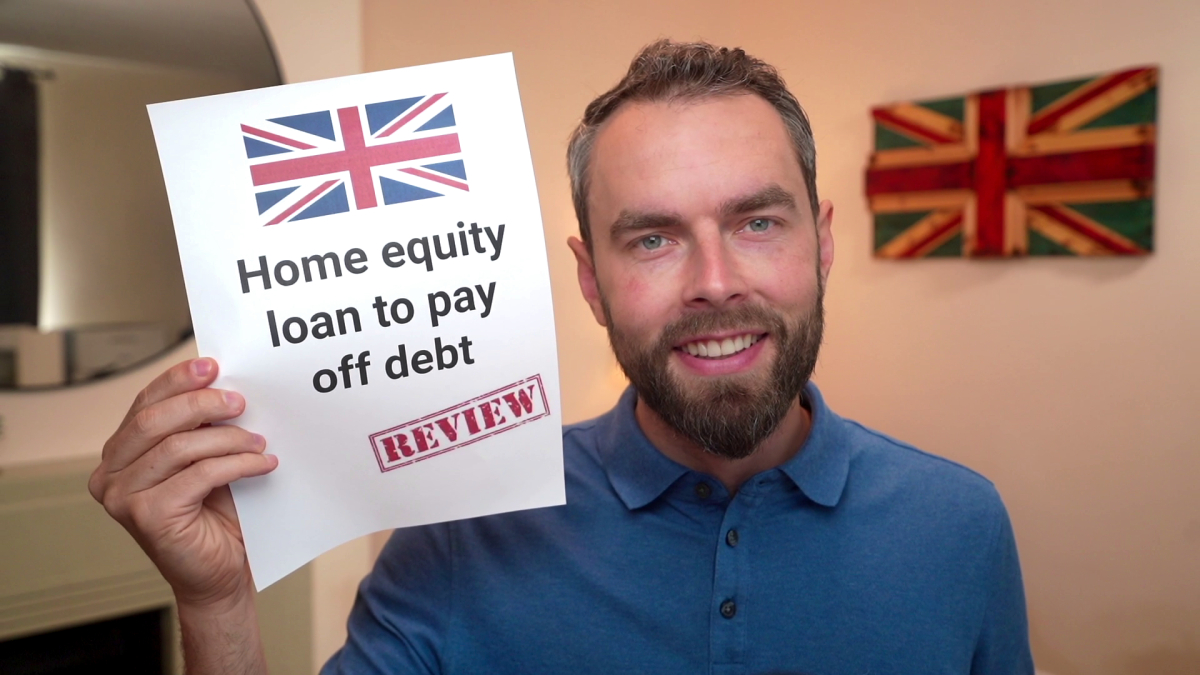
It is important to learn the details of the debt settlement process, as well as how to pay taxes. You will generally have to pay a lump sum. However, you may have to pay additional installments or payments depending on your creditors. In each case, you will have to pay off the debt within two year. You will end up owing the original amount of debt plus accrued interest, penalties and other fees.
Unsecured debts qualify for debt settlement
Debt settlement is a way to reduce debts and can help those who are overwhelmed by debt. Not all debts are eligible for debt settlement. It is therefore important to understand the details before you decide if it is right for your situation. To be eligible, your debt must remain unsecure. This means that it cannot have collateral attached. This includes all debts, such as credit cards and medical bills. This debt relief option is not recommended for federal student loans or back taxes.
Secured debts can be those that are tied directly to certain assets. If you can't repay your debt, the lender may take your property. Common examples of secured debts include auto loans and home mortgages. Another possibility is that you owe money under a security arrangement to a large retailer. This type of debt is harder to get than unsecured debts, and can carry a higher interest rate.

Form 1099-C can be used to settle your debts
You might have received Form 1099-C if your creditor is helping you with debt settlement. If you have received Form 1099-C from your creditor, it is worth checking to verify its accuracy and contacting them to request a rescinding. This will inform the IRS that incorrect information was contained on the form. You can also file a claim using the IRS dispute process.
You should consult a tax expert if you aren't sure if your debt settlement qualifies for tax. To report the debt settlement reached, you must submit Form 1099-C. This form is similar for income tax forms and details how much you settled. The 1099-C forms provide information about the amount forgiven and the taxable income remaining.
IRS Form 1099C allows you to report income from canceled debts. Any lender who agrees to cancel debt worth more than $600 must send this form to the IRS. This is also called "debt forgiveness tax." Before you seek debt cancellation, it is important to understand this.
Forgiven debt can be taxable income
Although you may not be aware, forgiven debt is considered taxable income under the Internal Revenue Code. This type of debt will give you a 1099C. You will have to pay taxes. The problem is that most individuals don't understand the implications of this tax situation, and that's why they need tax resolution services.

Whether or not a debt is taxable depends on the individual facts and circumstances of the case. In most cases, if a commercial lender has canceled a debt, the amount is taxable. Commercial lenders are also required to file Form 1099-C with the amount that was canceled. However, in certain circumstances, a cancelled debt may be exempt from taxation (e.g. bankruptcy or insolvency).
State governments are currently working to clarify this issue. In some cases, a borrower's forgiven debt is not considered taxable income unless it's an amount that exceeds the state's minimum threshold. However, if the debt is less than $600, for example, the forgiveness amount is not taxable.
FAQ
How to build a passive income stream?
You must understand why people buy the things they do in order to generate consistent earnings from a single source.
It is important to understand people's needs and wants. Learn how to connect with people to make them feel valued and be able to sell to them.
You must then figure out how you can convert leads into customers. The final step is to master customer service in order to keep happy clients.
Every product or service has a buyer, even though you may not be aware of it. If you know the buyer, you can build your entire business around him/her.
To become a millionaire it takes a lot. To become a billionaire, it takes more effort. Why? To become a millionaire you must first be a thousandaire.
And then you have to become a millionaire. And finally, you have to become a billionaire. You can also become a billionaire.
How can someone become a billionaire. You must first be a millionaire. You only need to begin making money in order to reach this goal.
Before you can start making money, however, you must get started. So let's talk about how to get started.
Which side hustles have the highest potential to be profitable?
Side hustles are income streams that add to your primary source of income.
Side hustles provide extra income for fun activities and bills.
Side hustles may also allow you to save more money for retirement and give you more flexibility in your work schedule. They can even help you increase your earning potential.
There are two types. Online side hustles can be passive or active. These include ecommerce shops, blogging and freelancing. Side hustles that are active include tutoring, dog walking, and selling products on eBay.
Side hustles that make sense and work well with your lifestyle are the best. Start a fitness company if you are passionate about working out. If you love to spend time outdoors, consider becoming an independent landscaper.
There are many side hustles that you can do. Consider side hustles where you spend your time already, such as volunteering or teaching classes.
If you are an expert in graphic design, why don't you open your own graphic design business? Or perhaps you have skills in writing, so why not become a ghostwriter?
You should do extensive research and planning before you begin any side hustle. If the opportunity arises, this will allow you to be prepared to seize it.
Remember, side hustles aren't just about making money. They can help you build wealth and create freedom.
With so many options to make money, there is no reason to stop starting one.
How does rich people make passive income from their wealth?
There are two options for making money online. The first is to create great products or services that people love and will pay for. This is what we call "earning money".
You can also find ways to add value to others, without having to spend your time creating products. This is what we call "passive" or passive income.
Let's imagine you own an App Company. Your job is development apps. You decide to make them available for free, instead of selling them to users. Because you don't rely on paying customers, this is a great business model. Instead, you can rely on advertising revenue.
To help you pay your bills while you build your business, you may also be able to charge customers monthly.
This is how internet entrepreneurs who are successful today make their money. They focus on providing value to others, rather than making stuff.
What is the difference in passive income and active income?
Passive income can be defined as a way to make passive income without any work. Active income requires work and effort.
When you make value for others, that is called active income. It is when someone buys a product or service you have created. For example, selling products online, writing an ebook, creating a website, advertising your business, etc.
Passive income can be a great option because you can put your efforts into more important things and still make money. Most people don't want to work for themselves. So they choose to invest time and energy into earning passive income.
The problem with passive income is that it doesn't last forever. If you hold off too long in generating passive income, you may run out of cash.
It is possible to burn out if your passive income efforts are too intense. Start now. You'll miss out on the best opportunities to maximize your earning potential if you wait to build passive income.
There are three types of passive income streams:
-
Businesses - these include owning a franchise, starting a blog, becoming a freelancer, and renting out the property such as real estate
-
Investments include stocks, bonds, mutual funds, ETFs, and ETFs.
-
Real Estate includes flipping houses, purchasing land and renting properties.
What is personal financial planning?
Personal finance is about managing your own money to achieve your goals at home and work. It is about understanding your finances, knowing your budget, and balancing your desires against your needs.
If you master these skills, you can be financially independent. This means you are no longer dependent on anyone to take care of you. You don't need to worry about monthly rent and utility bills.
Not only will it help you to get ahead, but also how to manage your money. It will make you happier. If you are happy with your finances, you will be less stressed and more likely to get promoted quickly.
So who cares about personal finance? Everyone does! Personal finance is one of the most popular topics on the Internet today. Google Trends has shown that searches for personal finance have increased 1,600% from 2004 to 2014.
People today use their smartphones to track their budgets, compare prices, build wealth, and more. You can read blogs such as this one, view videos on YouTube about personal finances, and listen to podcasts that discuss investing.
Bankrate.com estimates that Americans spend on average 4 hours per day viewing TV, listening to music and playing video games, as well reading books and talking with friends. It leaves just two hours each day to do everything else important.
Personal finance is something you can master.
How much debt is too much?
It's essential to keep in mind that there is such a thing as too much money. If you spend more than you earn, you'll eventually run out of cash because it takes time for savings to grow. You should cut back on spending if you feel you have run out of cash.
But how much is too much? There is no universal number. However, the rule of thumb is that you should live within 10%. Even after years of saving, this will ensure you won't go broke.
This means that you shouldn't spend more money than $10,000 a year if your income is $10,000. If you make $20,000, you should' t spend more than $2,000 per month. You shouldn't spend more that $5,000 per month if your monthly income is $50,000
It's important to pay off any debts as soon and as quickly as you can. This includes credit card bills, student loans, car payments, etc. You'll be able to save more money once these are paid off.
It is best to consider whether or not you wish to invest any excess income. If the stock market drops, your money could be lost if you put it towards bonds or stocks. However, if you put your money into a savings account you can expect to see interest compound over time.
For example, let's say you set aside $100 weekly for savings. In five years, this would add up to $500. You'd have $1,000 saved by the end of six year. You would have $3,000 in your bank account within eight years. When you turn ten, you will have almost $13,000 in savings.
At the end of 15 years, you'll have nearly $40,000 in savings. Now that's quite impressive. However, this amount would have earned you interest if it had been invested in stock market during the exact same period. Instead of $40,000, you'd now have more than $57,000.
It's crucial to learn how you can manage your finances effectively. Otherwise, you might wind up with far more money than you planned.
Statistics
- Mortgage rates hit 7.08%, Freddie Mac says Most Popular (marketwatch.com)
- 4 in 5 Americans (80%) say they put off financial decisions, and 35% of those delaying those decisions say it's because they feel overwhelmed at the thought of them. (nerdwallet.com)
- According to the company's website, people often earn $25 to $45 daily. (nerdwallet.com)
- According to a June 2022 NerdWallet survey conducted online by The Harris Poll. (nerdwallet.com)
- Shares of Six Flags Entertainment Corp. dove 4.7% in premarket trading Thursday, after the theme park operator reported third-quarter profit and r... (marketwatch.com)
External Links
How To
For cash flow improvement, passive income ideas
There are many online ways to make extra money without any hard work. Instead, there are ways for you to make passive income from home.
Automation could also be beneficial for an existing business. Automating parts of your business workflow could help you save time, increase productivity, and even make it easier to start one.
The more automated your business becomes, the more efficient it will become. This will enable you to devote more time to growing your business instead of running it.
Outsourcing tasks can be a great way to automate them. Outsourcing allows for you to focus your efforts on what really matters when running your business. Outsourcing a task is effectively delegating it.
This allows you to focus on the essential aspects of your business, while having someone else take care of the details. Outsourcing allows you to focus on the important aspects of your business and not worry about the little things.
A side hustle is another option. You can also use your talents to create an online product or service. This will help you generate additional cash flow.
Write articles, for example. Your articles can be published on many websites. These sites pay per article and allow you to make extra cash monthly.
Also, you can create videos. Many platforms now enable you to upload videos directly to YouTube or Vimeo. Posting these videos will increase traffic to your social media pages and website.
You can also invest in stocks or shares to make more money. Investing in stocks and shares is similar to investing in real estate. You are instead paid rent. Instead, you receive dividends.
These shares are part of your dividend when you purchase shares. The size of the dividend you receive will depend on how many stocks you purchase.
If you sell your shares later, you can reinvest the profits back into buying more shares. In this way, you will continue to get paid dividends over time.